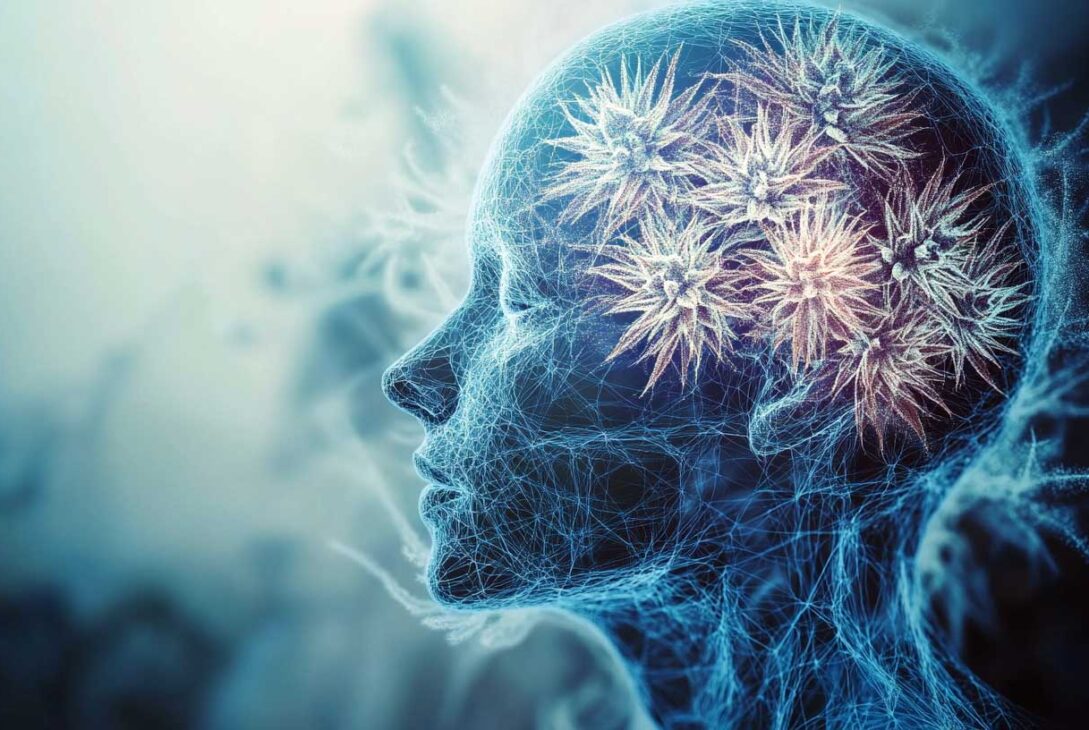Introduction to Cannabinoid Influence on Neuroplasticity and Cognition
The connection between cannabinoids, neuroplasticity, and cognition is a dynamic and emerging area of interest in both research and therapeutic practice. As the world increasingly looks toward natural compounds for health solutions, understanding how substances like CBD (cannabidiol) affect brain function becomes essential. In this article, we will explore the intricate dance between cannabinoids and the brain’s remarkable ability to adapt and change, particularly regarding learning and recovery from injuries.
Understanding Neuroplasticity
Neuroplasticity, often referred to as brain plasticity, is the brain’s phenomenal capability to reorganize itself by forming new neural connections throughout life. It’s a cornerstone of how we learn, recover from trauma, and adapt to new experiences.
Key Mechanisms of Neuroplasticity
Neuroplasticity is fueled by several mechanisms:
- Neuronal Regeneration: The brain can generate new neurons, particularly in the hippocampus, an area crucial for memory and learning.
- Synaptic Plasticity: This refers to lasting changes in the strength of synapses, which are the connections between neurons. Long-term potentiation (LTP) and long-term depression (LTD) are two processes that demonstrate this capability.
Neuroplasticity is not just a mechanism of recovery, it’s the foundation for all learning and cognitive growth, supporting the brain’s continuous development.
Cannabinoids and Neuroplasticity
Cannabinoids, particularly CBD and THC (tetrahydrocannabinol), engage with the endocannabinoid system (ECS) in our bodies, which plays a vital role in regulating various physiological processes, including those related to neuroplasticity.
Hippocampal Neurogenesis
Research shows that CBD might boost the creation of new neurons, especially in the hippocampus. This effect is remarkable because it could enhance functions critical for learning and memory. A study indicated that administering CBD to animal models led to increased rates of neurogenesis, suggesting its potential impact on cognitive performance.
Synaptic Plasticity
The capacity of cannabinoids to affect synaptic plasticity is significant. THC, for example, interacts with receptors in the brain that alter how neurons communicate. This interaction can enhance or inhibit synaptic connections, influencing how memories are formed and recalled. Yet, the effects can differ based on dosage and duration of use—demonstrating the delicate balance required when utilizing cannabinoids therapeutically.
Neuroinflammation and Neuroprotection
Beyond promoting new neural growth, CBD has been shown to fight neuroinflammation. By reducing inflammation in brain tissues and limiting oxidative stress, cannabinoids can promote a healthier environment for neurons. This neuroprotective effect is particularly promising for those at risk for neurodegenerative diseases, suggesting that CBD might support brain health over time.
Functional Connectivity
Cannabis use can also modulate how different brain regions communicate with one another. Some studies suggest enhancements in connectivity between areas associated with memory and emotion, while others raise concerns about impairments, particularly in frequent or high-dose users. This duality underscores the importance of moderation and informed use.
Impact on Cognition
The effects of cannabinoids on cognitive functions reveal a multifaceted relationship, one that spans both potential enhancement and risk.
Cognitive Enhancement
CBD has garnered interest for its ability to enhance concentration, executive function, and memory. By balancing excitatory and inhibitory signals in the hippocampus, CBD can foster an environment conducive to sharp cognitive performance. Individuals experimenting with CBD often report improved focus and clarity, although more rigorous studies are needed to quantify these effects.
Anxiety and Stress Reduction
CBD stands out for its potential to combat anxiety, which can inhibit cognitive performance. By helping regulate the body’s stress response, CBD can create a more favorable condition for cognitive tasks. Many users report that CBD alleviates feelings of nervousness, allowing for clearer thinking and improved performance in challenging situations.
Potential Risks
While many cannabinoids present therapeutic advantages, caution is necessary—particularly with THC. High doses may impair short-term memory and cognitive function, posing risks for individuals who rely on cognitive abilities for work or daily activities. Additionally, personal differences, such as genetics and age, can significantly influence how someone responds to cannabinoids.
Clinical Applications and Future Research
The potential applications of cannabinoids in clinical settings continue to expand as research deepens.
Therapeutic Uses
Recent studies have placed CBD in the spotlight for its therapeutic potential in treating conditions like epilepsy, anxiety, and various neurological disorders. Its neuroprotective attributes make it an appealing candidate for therapies targeting brain health, especially conditions linked to neuroinflammation or neurodegeneration.
Rehabilitation Techniques
Integrating cannabinoids into rehabilitation programs could prove beneficial. For example, pairing CBD with therapies designed for motor recovery after stroke or traumatic brain injury may enhance overall outcomes. Therapeutics that leverage both the medicinal properties of cannabinoids and established rehabilitation practices could pave the way for exciting new treatment paradigms.
Future Research Directions
As the field grows, several key areas warrant attention:
- Dosage and Administration: Research must refine optimal dosages, timing, and delivery methods for achieving the greatest therapeutic benefit.
- Understanding Individual Variability: The impact of genetics, sex, and age on cannabinoid effects should be deeply explored. Personalization may enhance efficacy while minimizing adverse effects.
- Broader Therapeutic Applications: Investigating additional neurological and mental health disorders where cannabinoids may serve a therapeutic role represents a potential frontier in medical treatment.
Conclusion
Exploring how cannabinoids influence neuroplasticity and cognition illuminates a path toward understanding brain health in a new light. With promising evidence pointing toward the benefits of substances like CBD, this is an exciting time to delve into their potential uses and impacts.
Actionable Tips
- Consult Healthcare Professionals: Always discuss cannabinoid use with a qualified professional, particularly if you’re considering it for specific health issues.
- Be Mindful of Dosage: Start with low doses and gradually increase, paying attention to how your body and mind respond.
- Incorporate Healthy Lifestyle Choices: Whether or not you choose to use cannabinoids, prioritize brain health with regular physical activity, nutritious eating, and cognitive exercises.
With the blending of scientific wisdom and personal experiences, the journey into the world of cannabinoids, neuroplasticity, and cognition can be both enlightening and transformative.
Additional Resources
For further reading and to stay updated on the latest research, consider exploring:
- Peer-reviewed journals for cutting-edge studies on cannabinoids and their applications.
- Healthcare guidelines providing comprehensive insights into the effects of cannabinoids on brain health and neuroplasticity.
By combining accurate information with a narrative that resonates on a human level, this guide aims to empower you with the knowledge to navigate the promising world of cannabinoids and their impact on cognitive health.




















